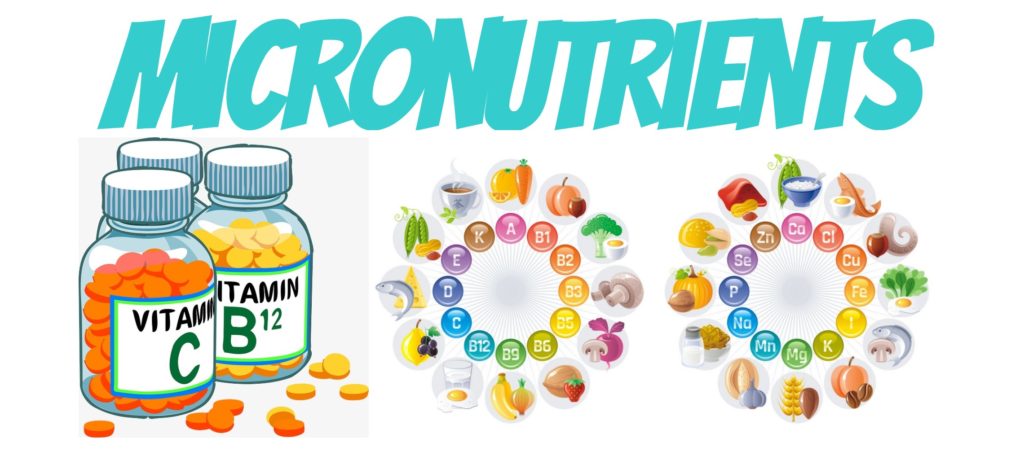
(Source: pgwellness.com)
What are Micronutrients?
Micronutrients, often vitamins and minerals, are essential for healthy growth, illness prevention, and well-being. Micronutrients must be obtained from the diet because the body cannot generate them, except for vitamin D. According to a senior lecturer at Monash University Malaysia and member of the Nutrition Society of Malaysia council, micronutrient deficiencies pose a severe threat to our goal of creating a healthier Malaysia. According to the National Library of Medicine, three out of ten senior Malaysians are in danger of malnutrition. According to a recent survey of Malaysians aged 40 to 59, 95% of those surveyed worried about their bone health, particularly how it would impair their strength and mobility. It should be no surprise that caring for your physical body becomes increasingly important as you age since numerous health concerns develop as you age.
Calcium
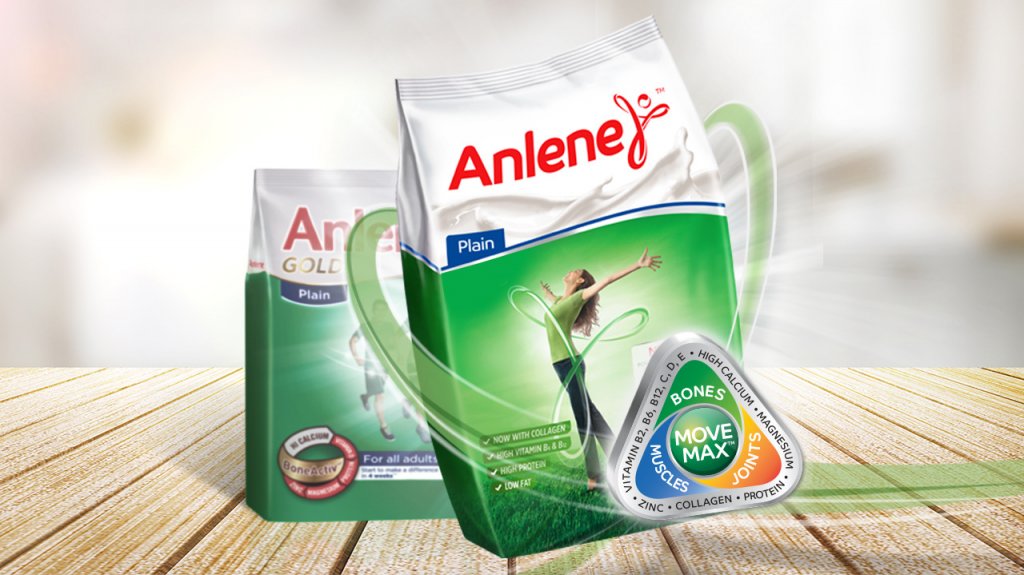
(Source: anlene.com)
One of the most vital minerals for the human body is calcium. It aids in the formation and maintenance of strong bones and teeth. Additionally, calcium keeps your muscles and nerves healthy and aids in blood clotting. Even the prevention of certain cancers and high blood pressure may be helped by calcium. You are at risk for osteoporosis if you do not consume enough calcium. According to estimates, 77% of Malaysian women have post-menopausal osteoporosis, making it a significant health concern in the country. Despite its considerable influence on a woman’s life, this disease is still underdiagnosed and undertreated, with very little data on its prevalence. According to Professor Dr Chan Siew Pheng, president of the Malaysian ODroporosis Society, osteoporosis makes bones more prone to fracture. As a result, senior people must get enough calcium.
Where can you get calcium from? You can drink more milk and eat cheese and other dairy products to increase calcium intake. However, according to Loo Mei Fong, senior nutritionist with Dutch Lady Milk industries, the trend is lower in Malaysia compared to other countries where they do not consume enough milk and milk products. I would advise ALENE MOVEMAX. This is the adult milk that emphasises healthy ageing. It has twice as much calcium (600 mg) as ordinary milk, which aids in developing more robust bones.
Vitamin C
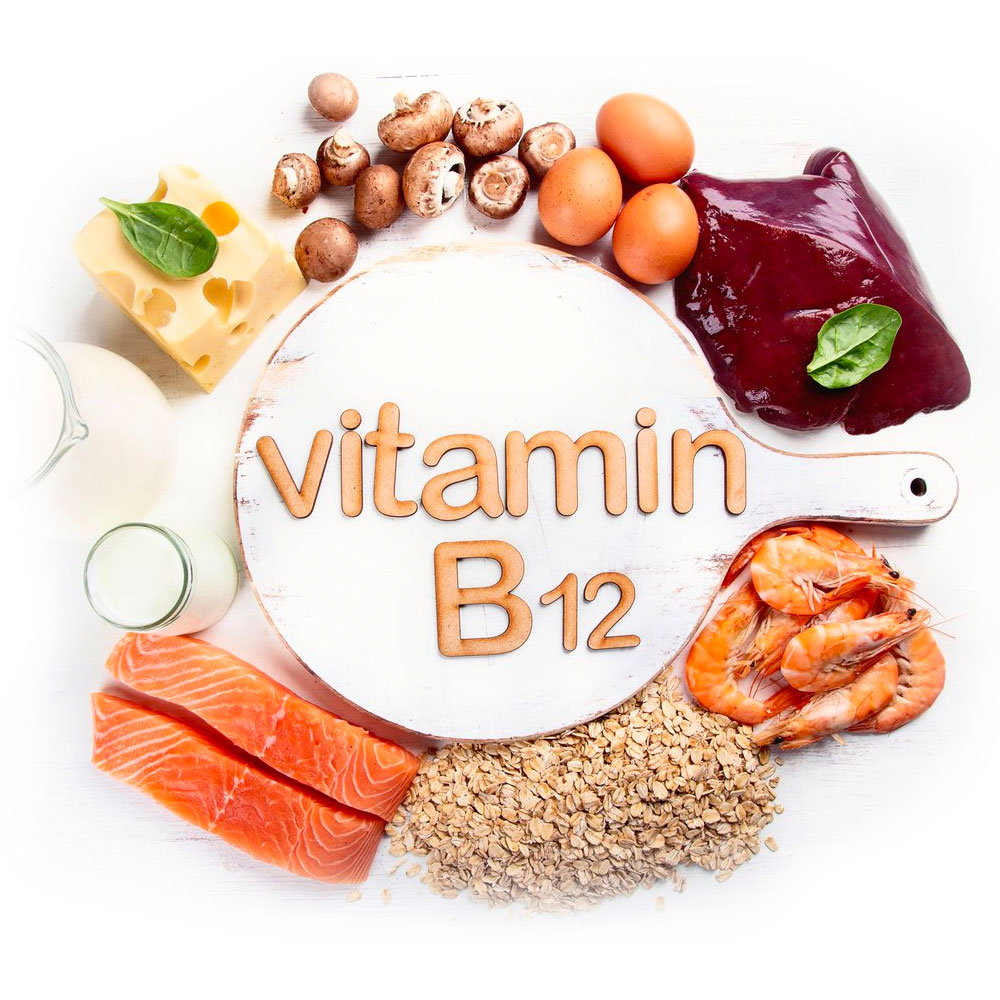
(Source: Takaski.com)
Taking better care of your body as you age is more crucial than you may have in your youth. Some essential vitamins and minerals became more complicated for the body to digest or produce on their own as time went on. Vitamin B12 is one such nutrient—the liver stores vitamin B12, which is essential for proper cognitive function. Red blood cells, DNA, and the maintenance of normal neuron function all depend on it. According to IIUM Repository, the number of senior people in Malaysia diagnosed with cognitive impairment is rising, causing tremendous anxiety in the health sector. The elderly have more difficulty getting enough B12 since they don’t absorb it from meals like younger individuals. The Elderly are more likely to experience vitamin B12 deficits because the ability to absorb vitamin B12 naturally available in meals depends on the presence of sufficient stomach acid. However, as you get older, your stomach acid production tends to decrease. Modifying risk factors, in this case, food consumption, particularly by consuming a diet high in B12 vitamins, is one strategy to combat this growing issue. So, you should drink more foods rich in vitamin B12, including fish, meat, and eggs.
Fibre
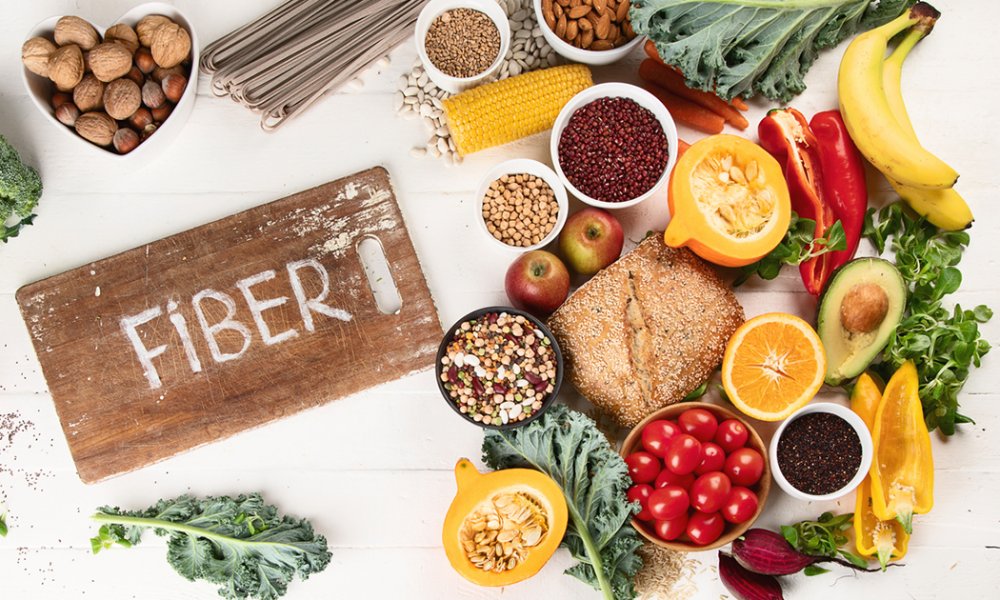
(Source: diabetes.co.uk)
Diabetes and high cholesterol are two frequent health issues we get as we age due to our dietary habits. By reducing cholesterol, fibre can aid the elderly in their fight against heart disease. A high-fibre diet can also reduce the risk of developing specific conditions, such as colorectal cancer. Additionally, diabetes is a health issue for many older adults. Fibre can help you manage your blood glucose levels if you have diabetes. The nutrient breakdown is slowed by fibre. As a result, glucose from food can enter the blood gradually. In addition, ageing disrupts the colon’s natural rhythmic contraction due to insufficient fibre intake. The fibre in diets made with whole grains helps the elderly to avoid constipation. To prevent constipation, you can consume high-fibre foods like beans, oats, barley, almonds, and walnuts, which can help seniors to lower their cholesterol. Some elderly avoid fibrous foods because of a lack of teeth or because they wear dentures. In this case, you can change the texture of the food by slicing, chopping, blending, braising food until soft, mashing it up or grinding it.
Protein
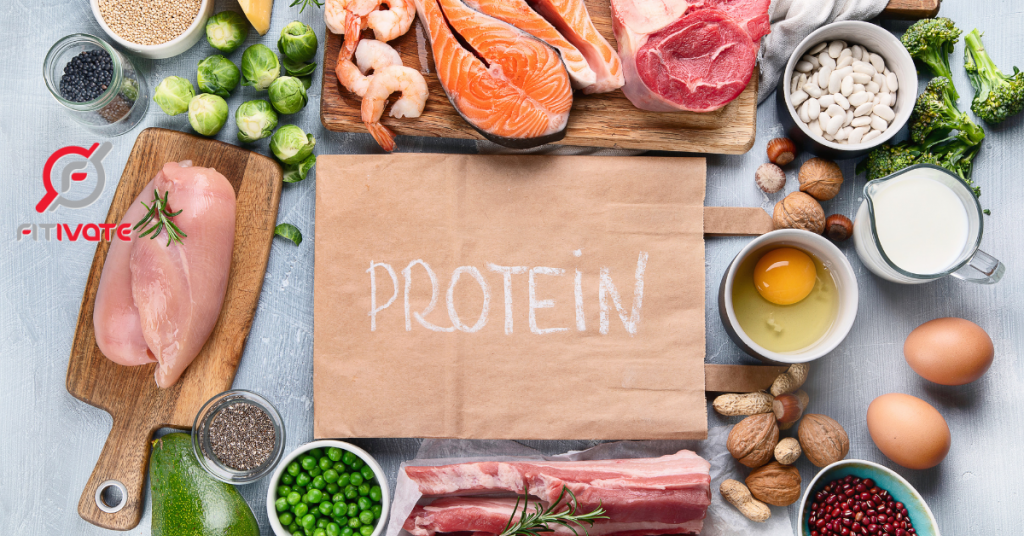
(Source: fitivate.com)
According to health hub, as you age, your body needs about 50% more protein than it does when you’re a younger adult to retain your strength, muscle mass, and quality of life. Increasing the body’s immune system and speeding up the healing process from the disease are other benefits of getting enough protein. You can delay the loss of muscle mass and function and maintain daily activities like walking, grocery shopping, and socialising by having enough protein in your diet. As early as age 40, muscular mass might begin to decline. Loss of muscle mass increases the risk of falls and bone fractures, which would adversely impact your quality of life; hence, adults need to take heed early. You should consume more protein foods such as eggs and fish such as salmon and seafood.
Potassium
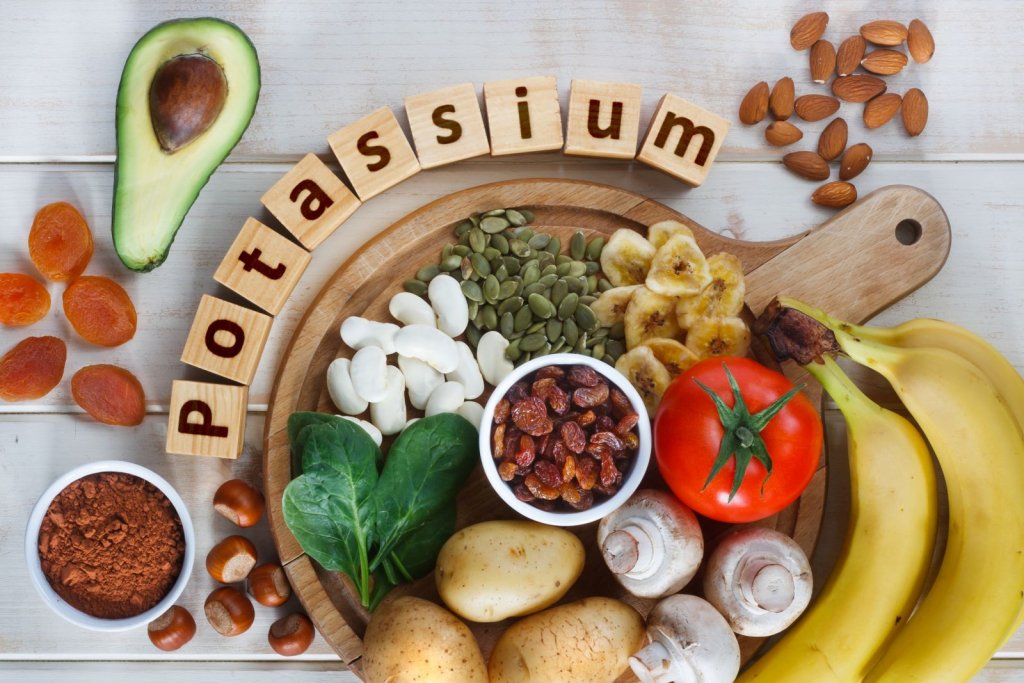
(Source: health.harvard.edu)
Consuming adequate potassium daily may also support strong bones. This crucial mineral is vital for cell function and has also been demonstrated to help lower high blood pressure and the danger of kidney stones. Kidney stones are hard crystals that form in the urinary system. According to New Straits Times, kidney illness affects one in ten Malaysians, making it quite frequent in Malaysia. Even though they can affect anyone, they are more common in men, overweight individuals, and persons over 50. The National Kidney Foundation stated that people with kidney disease might need to watch their sodium, potassium or other minerals intake, depending on the stage of kidney disease or other factors. Not only that, but without enough potassium in your body, you’ll feel overly tired and weak, and your heart might not be able to function correctly. To boost your potassium intake, you must eat more fruits and vegetables. The Linus Pauling Institute shares that the richest sources are bananas, baked potato with skin, prune juice, prunes, raisins, orange juice and tomato juice.
What should you do to improve the nutrition of your loved one?

(Source: giphy.com)
What if your loved one lacks some of the above micronutrients? Micronutrient deficiencies may lead to lots of symptoms as we get older. So, you need to ensure that they are consuming foods rich in those micronutrients by informing them that they must eat more or buy for them if they cannot accept. Every micronutrient has a different recommended daily consumption for seniors. As we age, having too little or too much of the above micronutrients in the body might lead to issues. Therefore, you must bring your loved one for a checkup every year to determine which micronutrients they are deficient in and how much of each they need as well as whether there is another issue with your health that requires additional care. Older adults in Malaysia have another option besides eating meals that contain these micronutrients; they can use nutrition supplements. You can purchase accessories from places like pharmacies or supplement shops for the elderly. However, consult your doctor first before taking those supplements. A doctor’s advice should always be sought before using any supplements.
References
https://www.cdc.gov/nutrition/micronutrient-malnutrition/micronutrients/index.html#:~:text=Micronutrients%2C%20often%20referred%20to%20as,derived%20from%20the%20diet1.
9 out of 10 middle-aged Malaysians concerned about bone health
https://pubmed.ncbi.nlm.nih.gov/33953978/
https://www.nst.com.my/lifestyle/heal/2022/05/800596/hidden-hunger-threat-health-and-wellbeing
https://www.webmd.com/healthy-aging/features/missing-nutrients
https://www.webmd.com/healthy-aging/what-to-know-about-vitamin-b12-dosage-for-older-adults
A Pillar of Strength in Golden Years: 10 Paths on How Regular Screenings Uphold Your Health
In the evocative voyage of life, the golden years emerge as a time to relish the fruits of decades of labor, to bask in the
Unlock the Secret to Sweet Dreams: 10 Ways of Enhancing Sleep Quality as You Age
Share on facebook Facebook Share on twitter Twitter Share on linkedin LinkedIn Share on pinterest Pinterest Share on telegram Telegram Share on whatsapp WhatsApp Share
Building Bridges, Not Walls: 10 Methods of Mastering the Art of Cultivating Social Connections in the Golden Years
Share on facebook Facebook Share on twitter Twitter Share on linkedin LinkedIn Share on telegram Telegram Share on whatsapp WhatsApp Share on email Email Share
Navigating the Golden Years: 10 Ways to Achieve Emotional Wellness and Conquering Loneliness
Share on facebook Facebook Share on twitter Twitter Share on linkedin LinkedIn Share on pinterest Pinterest Share on telegram Telegram Share on whatsapp WhatsApp Share
Stay Brainy in Your Golden Years: 10 Fun Activities to Keep Your Mind Sharp and Engaged!
Hello, brain buffs! Aging might be inevitable, but letting our minds turn to mush? No way, José! Time to boot up those brain cells and
10 Effective Exercise Routines for Older Adults: Low-Impact Fitness Options
Of course, maintaining physical health is crucial at any age, but especially so as we grow older. Here are ten gentle, effective, and friendly exercise